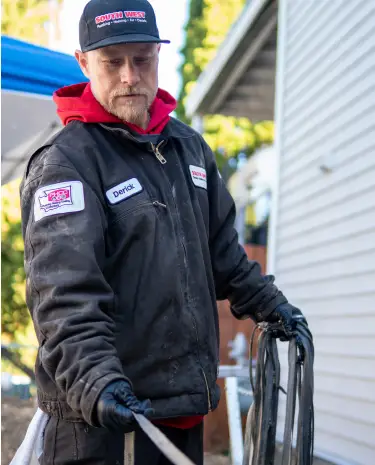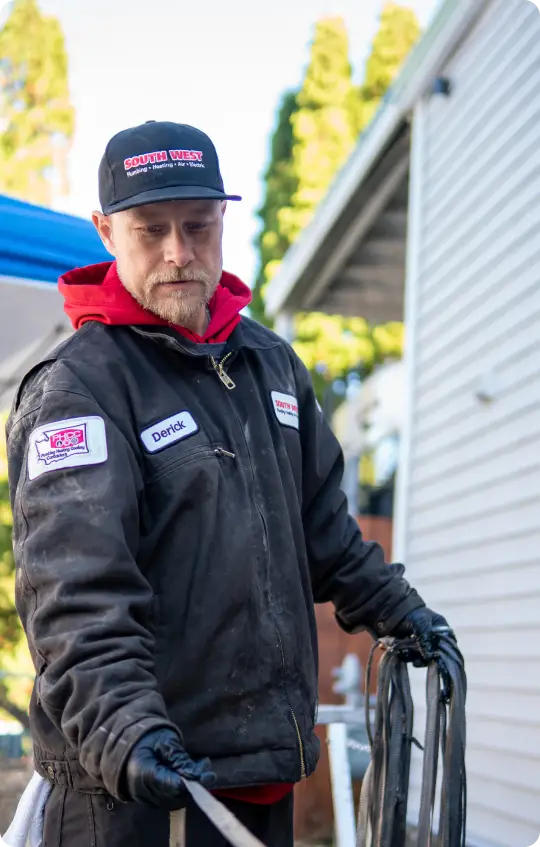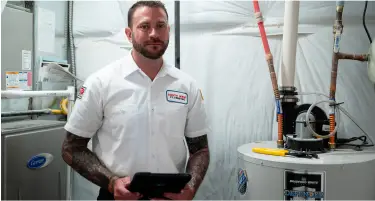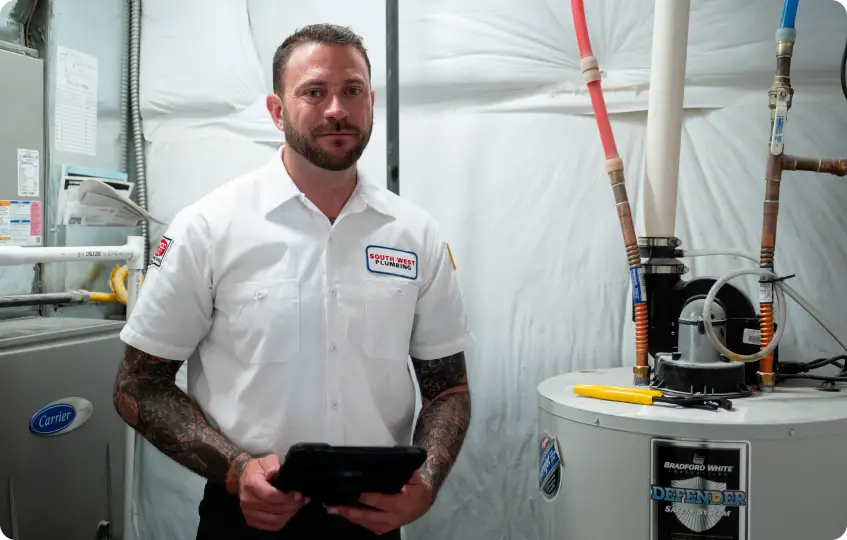The plumbing in older homes won’t last forever, especially in Seattle, WA, where one in four homes was built before 1940. As these homes’ piping systems age, they’ll need replacement and modernization through a process called whole-home repiping.
If you live in Seattle, contact South West Plumbing, Heating, Air & Electric to find out how your home could benefit from whole-home repiping.

What Does It Mean to Repipe Your House?
Repiping simply means replacing pipes in a plumbing system. The process involves exposing the pipes first, which means cutting open walls and floors as needed. Plumbers then change the pipes, test the system, and close up whatever cuts they made to reach the pipes.
Repiping can take a while. There will be times when the water is off, and the construction involved can be noisy. However, the disruption and noise are worth it because of the benefits of modernizing and upgrading the pipes in your home.
As pipes get older, they become more susceptible to leaks, weakened connections, and corrosion. You could soon find yourself chasing problems from pipe to pipe as the older system starts to go.
Much older pipes may still contain lead that can leach into the water. And if your home’s plumbing was installed before 1986, it might not use lead pipes, but it could still have lead solder.
Older drainpipes can become susceptible to clogs because so much gunk builds up on the insides of the pipe. While cleaning the pipes is an option, sometimes it’s more efficient to replace them before they become an emergency plumbing issue.
Our Repiping Services in Seattle
We aim to make the repiping process minimally disruptive. We keep the cuts as small as possible and take care to protect everything around the cut, from carpeting to windows and more. We’ll test the plumbing system to ensure all connections are good and that the pipes are holding up well before repairing the cuts we made.
Signs Your Home Needs Repiping Services
Because most of the pipes in your home are hidden from view, it’s difficult to know what condition they’re in. You may need to have your home repiped if you experience any of these issues:
- Visible corrosion: Rust indicates that the pipe metal is deteriorating, even if you don’t see water dripping out.
- Strange colors or smells in the water: Rust can contaminate the water, creating discoloration. Bacteria can enter through holes in the pipes, leading to smelly water.
- Bad water pressure: Leaks in the pipes divert water away from the main flow and toward your faucets. This can result in the water pressure seeming abnormally low.
- Repeated repairs: If it seems like you’re fixing one problem only for another one to pop up nearby, you may need to replace pipes in your home.
Call Today to Schedule Professional Piping Services in Seattle
Don’t assume that you can’t do anything about smelly water, bad pressure, or an increasing number of pipe repairs as your home gets older. Have a plumber replace pipes in your home so that you can continue to enjoy where you live.
Worried about the state of your home’s pipes? Contact South West Plumbing, Heating, Air & Electric today for whole-home repiping services in Seattle.
Frequently Asked Questions
Yes. Lead pipes (or lead solder) allow lead to contaminate the water that flows through them. That can lead to long-term health problems, especially in children. Leaking pipes can lead to water damage and mold growth. Your plumbing will last for several years, but the total lifespan depends on the material. PVC tends to last somewhere between 25 and 50 years. Copper, galvanized steel, cast iron, and brass last much longer, with minimum expected lifespans of 70 to 80 years. How long repiping an entire house will take depends on the size of your home, the age of your plumbing system, and the complexity of your piping. You should expect the process to take at least a week. Keep in mind that issues like lead remediation might come into play.Can old pipes pose a health hazard?
What is the lifespan of my home’s plumbing?
How long does it take to repipe an entire house?








